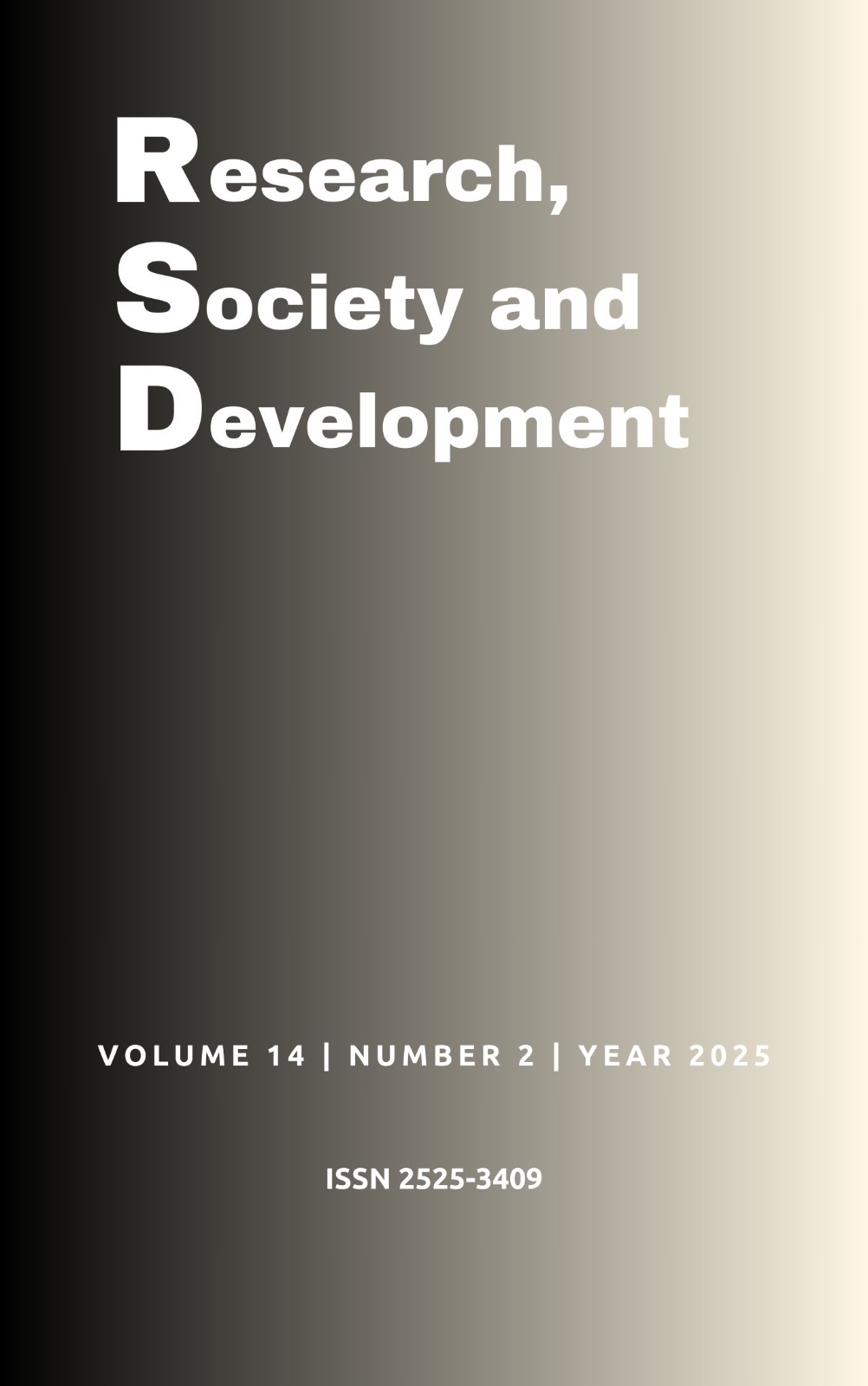Religion and Religiousity in Public Mental Health Policies: The challenges to completeness care
DOI:
https://doi.org/10.33448/rsd-v14i2.48304Keywords:
Religion, Mental Health, Health Policy.Abstract
In Brazil, the religious dimension has always been a striking characteristic of its population. According to data from the Brazilian Institute of Geography and Statistics (IBGE), in 2022, 76% of Brazilians said they follow some religion, exceeding the global average of 67%. The concept of health, expanded by the WHO in the 1940s, began to include physical, mental and social well-being. This study aims to analyze how religious practices influence mental health care within the context of the SUS. A bibliographic review was carried out in databases such as Scielo, LILACS and VHL, using the descriptors "Mental Health", "Religion and Medicine" and "Integrality in Health". Articles from the last ten years were included and those with methodologies with low scientific rigor were exclude. The study identified a great diversity in religious practices in the treatment of mental imbalances in Brazil, such as prayer, spiritual counseling and religious rituals. However, some religious groups resist the integration of conventional mental health approaches, prioritizing spiritual methods. Lack of effective communication between healthcare professionals and religious leaders contributes to barriers to collaboration. To improve mental health care in the SUS, it is necessary to train mental health professionals, raise awareness in the community through public education and create spaces for interreligious and interdisciplinary dialogue. Clear ethical guidelines are also essential to respectfully and effectively integrate religious practices into mental health care, balancing Brazil's cultural and religious diversity.
References
Almeida, A. M. (2009). Espiritualidade e Saúde Mental: O desafio de reconhecer e integrar a espiritualidade no cuidado com nossos pacientes. Zen Review, 8716, v.1, 1-6. https://www.espiritualidades.com.br/Artigos/M_autores/MOREIRA-ALMEIDA_Alexander_tit_Espiritualidade_e_Saude_Mental.pdf.
Almeida, J. M. C. de. (2019). Política de saúde mental no Brasil: o que está em jogo nas mudanças em curso. Cadernos de Saúde Pública, 35(11). https://doi.org/10.1590/0102-311x00129519
Araújo, T. M. & Torrente, M. O. N. (2020). Mental Health in Brazil: challenges for building care policies and monitoring determinants. Epidemiol. Serv. Saúde. 32(1). https://doi.org/10.1590/S2237-96222023000200028.
Besset, V. L. (2020). Um nome para a dor: fibromialgia. Rev Mal Estar Subj. 10: 1245-70. Brasil. (1990). Lei nº 8.080 de 19 de setembro de 1990. Dispõe sobre as condições para a promoção, proteção e recuperação da saúde. Diário Oficial da União. Brasília, DF.
Casarin, S. T. et al. (2020). Tipos de revisão de literatura: considerações das editoras do Journal of Nursing and Health. Journal of Nursing and Health. 10(5). https://periodicos.ufpel.edu.br/index.php/enfermagem/article/view/19924.
Cascudo, L. C. (2019). Civilização e cultura. Belo Horizonte: Itatiaia. Dalgalarrondo, P. (2018). Religião, psicopatologia e saúde mental. Porto Alegre: Artes Médicas.
Dias, E. N. & Pais-Ribeiro, J. L. (2019). O modelo de coping de Folkman e Lazarus: aspectos históricos e conceituais. Rev Psicol Saúde. 11(2), 55-66.
IBGE. (2020). Censo demográfico 2020. Rio de Janeiro: Instituto Brasileiro de Geografia e Estatística (IBGE).
Monteiro, D. D., Reichow, J. R. C., Sais, E. F., & Fernandes, F. S. (2020). Espiritualidade/religiosidade e saúde mental no Brasil: Uma revisão. Boletim - Academia Paulista de Psicologia, 40(98), 129-139.
Murakami, R. & Campos, C. J. G. (2014). Religião e saúde mental: desafio de integrar a religiosidade ao cuidado com o paciente. Rev Bras Enferm. 65(2), 361-7.
Neves, A. C. (2021). Conceito ampliado de saúde em tempos de pandemia. Poliética. 9(1), 78-95.
Oliveira, M. R. J. (2013). Saúde mental e espiritualidade/religiosidade: a visão de psicólogos. Estud Psicol. 17(3).
https://doi.org/10.1590/S1413-294X2012000300016.
Pereira A. S. et al. (2018). Metodologia da pesquisa científica. [free e-book]. Editora UAB/NTE/UFSM.
Rother, E. T. (2007). Revisão sistemática x revisão narrativa. Acta Paul. Enferm. 20 (2). https://doi.org/10.1590/S0103-21002007000200001. Spica, M.A. (2018). Pluralidade e diálogo inter-religioso: possibilidades e limites das atuais abordagens pluralistas. Trans/Form/Ação. 41(4), 135-54.
Wolfe, F. et al. (2019). The American College of Rheumatology preliminary diagnostic criteria for fibromyalgia and measurement of symptom severity. Arthritis Care Res (Hoboken). 62(5), 600-10.
Downloads
Published
Issue
Section
License
Copyright (c) 2025 Eduardo Chaves Ferreira Coelho; Carlos Eduardo Macedo Rego; Jailson Antônio da Luz Júnior; Brenda de Oliveira Melo; Ana Beatriz Ferro de Melo; Pedro Gabriel de Lima Carneiro Borges; Carolina Teles Lemos

This work is licensed under a Creative Commons Attribution 4.0 International License.
Authors who publish with this journal agree to the following terms:
1) Authors retain copyright and grant the journal right of first publication with the work simultaneously licensed under a Creative Commons Attribution License that allows others to share the work with an acknowledgement of the work's authorship and initial publication in this journal.
2) Authors are able to enter into separate, additional contractual arrangements for the non-exclusive distribution of the journal's published version of the work (e.g., post it to an institutional repository or publish it in a book), with an acknowledgement of its initial publication in this journal.
3) Authors are permitted and encouraged to post their work online (e.g., in institutional repositories or on their website) prior to and during the submission process, as it can lead to productive exchanges, as well as earlier and greater citation of published work.


